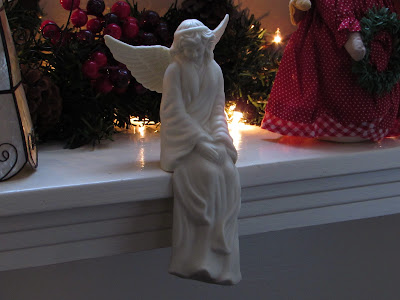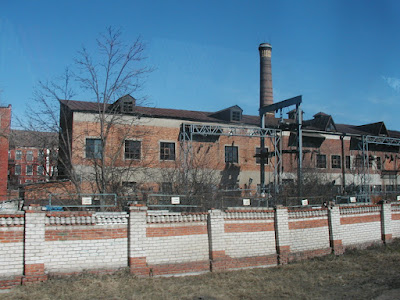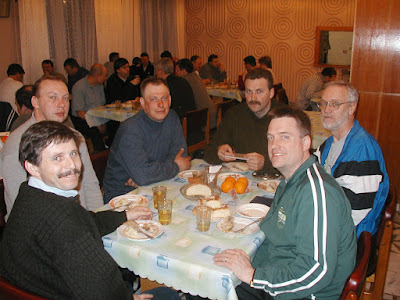Three of the fathers -- John Horton, Troy Martin, and I -- had been asked to share thoughts about "fatherhood" with a young adults group. As I understood short-term missions at that time, this is where the real work of missions would happen. I had thought we would be returning to the house where the house church had met, but we were actually taken to the mission center. There were somewhere between 25 and 30 young adults attending. My notes record that we had a good time.
We played some games, sang songs with a band, heard the testimony of a new believer, and then the American fathers shared. John Horton shared on the story of the prodigal son. Troy Martin shared on the "long vision" of fatherhood. Between these two messages, which I thought showed a good understanding of their audience, I shared on the issue of discipline.
As a father and as the son of a father who disciplined, I know the subject fairly well from experience. Furthermore, it was not hard to find Biblical underpinnings for my comments. As a teacher, however, I found it hard to "read" my audience; they looked unresponsive. A few years later while teaching in Korea, I was more prepared for what body language and lack of facial expression suggested. I had thought about how to address the traditional lack of student interaction. Although I may have been experiencing a cultural norm, I sat down feeling that I had missed an opportunity to do some good for these young adults.
After the fathers had spoken, our group stayed for quite a while. There was a lot of conversation among the young people. Stefan played drums for a while with the band, then everyone cleared out and our group had team time. My spirits improved. All told, yes, we had a good time.
For team time, Troy asked us to say a few words about someone in our group who had been kind to us. A lot of us offered things, but the one that stands out was this: John Woodard said he had a complicated relationship with Dan, one of our high school players, because Dan "gets under my skin in the worst way"; but he was also impressed with how easily Dan connected with kids and how eager he was to win them over. We all agreed and laughed because we had all had our own Dan experiences. Dan was pleased on both accounts -- as only Dan could be.
At the end, I handed out the chocolate I had received at dinner, so we dispersed on that sweet note. Andrew, our interpreter, was waiting for Stefan in the hall to show him a beautiful wood carving he had made. We knew that Andrew had, among other things, done the wood carvings on the benches outside the mission center, so Stefan would naturally have asked him about the art of wood carving.
While I don't believe this was the carving in question, when Andrew showed up with this figure, Stefan bought it on the spot. And their art conversations, like many traceable cause and effect transactions, would lead us to one of the most profound and memorable experiences we were to have in Vladimir.










































